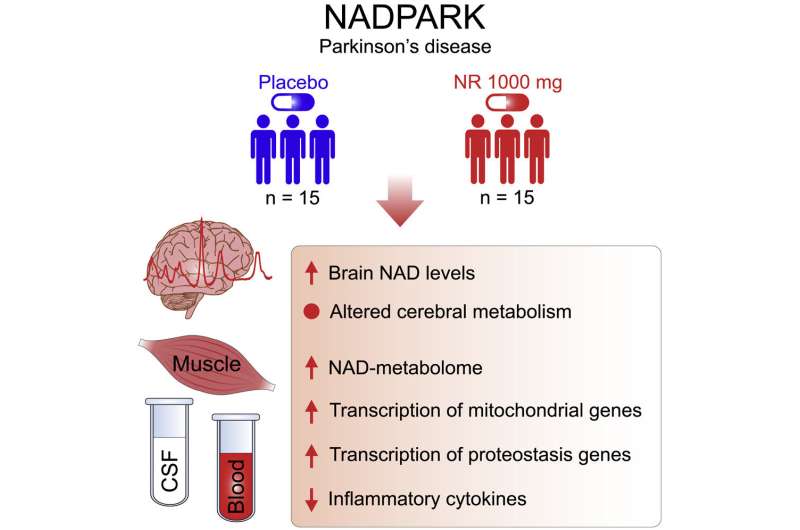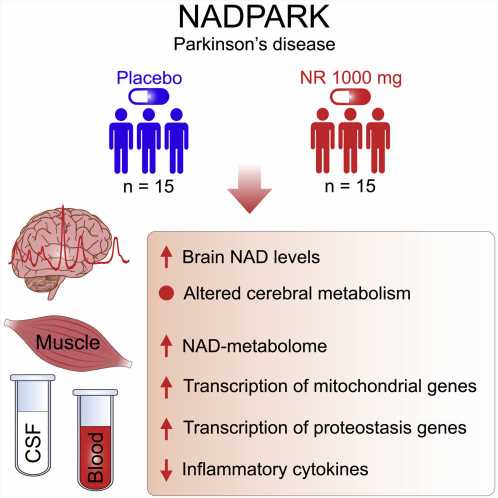
Nicotinamide riboside (NR) is a member of the vitamin B3 family, which can be found in foods like fruits, vegetables, meat, and milk. It is also used as a nutritional supplement to boost cellular levels of NAD (nicotinamide adenine dinucleotide).
NAD is an essential metabolic factor, which is vital to a multitude of cellular processes, including energy metabolism, DNA damage repair, and control of gene expression. Increased cellular NAD levels have been linked to a longer and healthier life in animals and have been shown to protect neuronal cells against various forms of stress. The study shows for the first time that the NAD levels of the human brain can be increased by ingesting NR.
A potential new treatment
The goal of this randomized, double-blinded phase I trial was to establish whether NAD metabolism can be augmented in the brain of individuals with Parkinson’s disease, by ingesting NR, an NAD-precursor. A total of 30 individuals with early Parkinson’s disease received either 1,000 mg NR or placebo for a total of 30 days. The study showed that NR supplementation significantly increased NAD levels in the patient brain, and resulted in altered cerebral metabolism and decreased markers of inflammation in the fluid surrounding the brain and spinal cord. Moreover, a mild but significant improvement of Parkinson’s disease symptoms was seen in participants who showed substantially increased brain NAD levels, and this correlated with the change in the brain’s energy metabolism pattern.
The study was led by Prof. Charalampos Tzoulis, at Haukeland University Hospital and the University of Bergen.
“We are very excited about these results. This trial represents a novel approach in experimental PD-therapy,” Tzoulis says.
Source: Read Full Article
